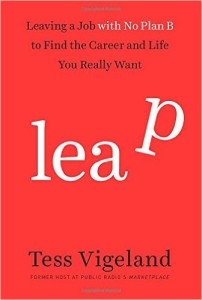 Today’s top story: What your credit score doesn’t say about your finances. Also in the news: Putting yourself on a money diet, financial lessons to master before 40, and what to do if you actually win tonight’s Powerball jackpot.
Today’s top story: What your credit score doesn’t say about your finances. Also in the news: Putting yourself on a money diet, financial lessons to master before 40, and what to do if you actually win tonight’s Powerball jackpot.
4 Things Your Credit Score Doesn’t Say About You
What isn’t revealed.
How to Put Yourself on a Money Diet
Getting in financial shape.
8 personal finance lessons you must master by age 40
Putting yourself in a better position for retirement.
What to Do with the Money If You Actually Win Tonight’s Powerball Jackpot
After you stop screaming.
 Today’s top story: The most important number in your financial life. Also in the news: How to get the most from a balance transfer credit card, how to build up your emergency fund, and how to audit your financial products.
Today’s top story: The most important number in your financial life. Also in the news: How to get the most from a balance transfer credit card, how to build up your emergency fund, and how to audit your financial products.  Today’s top story: How to put an end to credit card solicitations. Also in the news: How a two checking account system could help automate your budget, how to maximize your pension, and five surprising sources of debt.
Today’s top story: How to put an end to credit card solicitations. Also in the news: How a two checking account system could help automate your budget, how to maximize your pension, and five surprising sources of debt.  Today’s top story: How to tackle your holiday debt. Also in the news: Saving time on your FAFSA, how to deal with debt before retirement, and the best financial tips that can fit on an index card.
Today’s top story: How to tackle your holiday debt. Also in the news: Saving time on your FAFSA, how to deal with debt before retirement, and the best financial tips that can fit on an index card.  Today’s top story: The excuses that are keeping you from being debt-free. Also in the news: A major data breach at Time-Warner Cable, smart ways to spend your tax refund, and why most Americans couldn’t handle a surprise $500 bill.
Today’s top story: The excuses that are keeping you from being debt-free. Also in the news: A major data breach at Time-Warner Cable, smart ways to spend your tax refund, and why most Americans couldn’t handle a surprise $500 bill.  I’m delighted to announce that I’ve accepted a job with Nerdwallet, the personal finance site, and to celebrate this leap I’m giving away a copy of Tess Vigeland’s wonderful memoir “Leap: Leaving a Job with No Plan B.”
I’m delighted to announce that I’ve accepted a job with Nerdwallet, the personal finance site, and to celebrate this leap I’m giving away a copy of Tess Vigeland’s wonderful memoir “Leap: Leaving a Job with No Plan B.” Today’s top story: What the recent Fed rate hike means for your adjustable-rate mortgage. Also in the news: One state moves to forgive student loans, how to write ironclad financial resolutions, and how to supercharge your retirement savings.
Today’s top story: What the recent Fed rate hike means for your adjustable-rate mortgage. Also in the news: One state moves to forgive student loans, how to write ironclad financial resolutions, and how to supercharge your retirement savings.